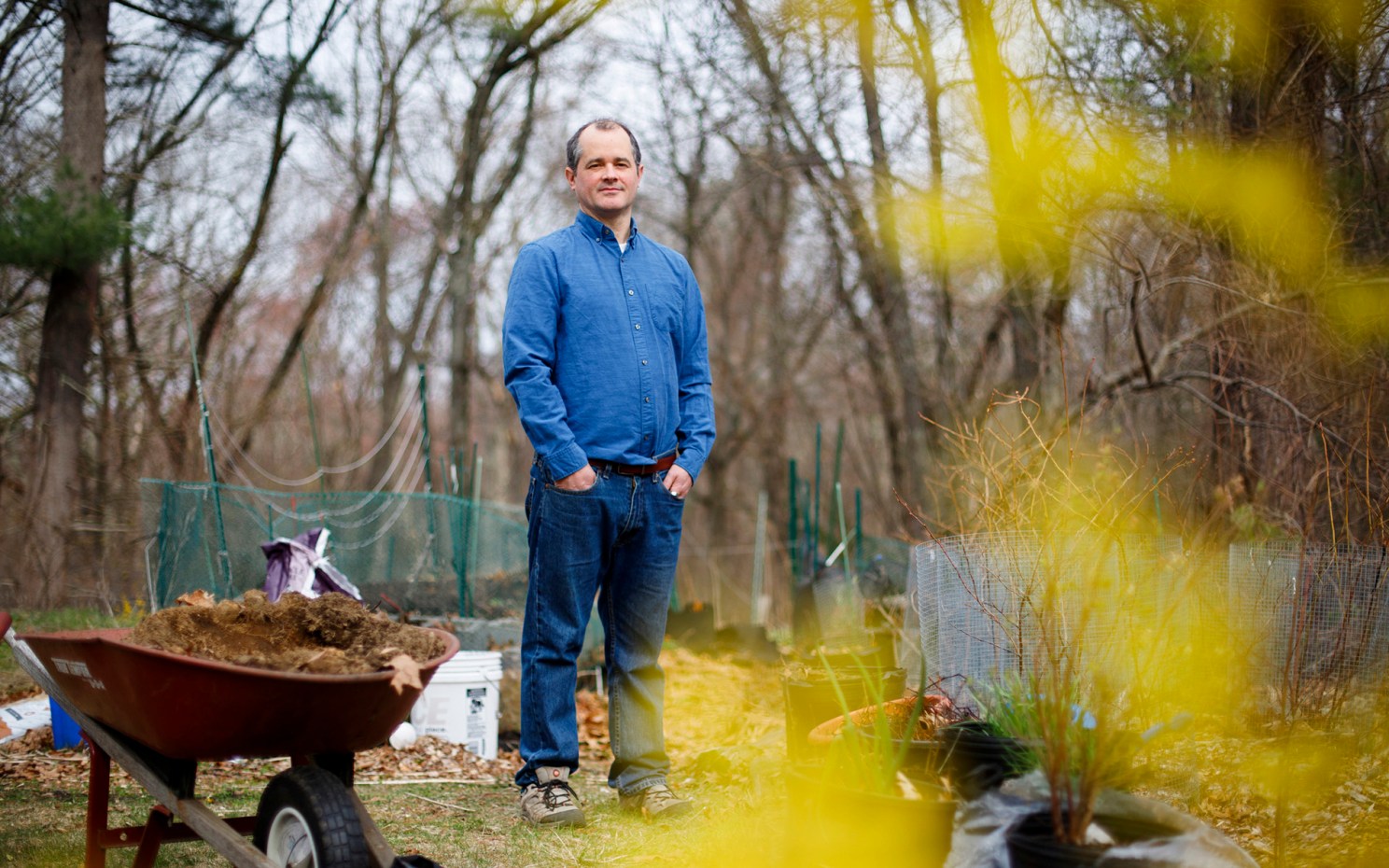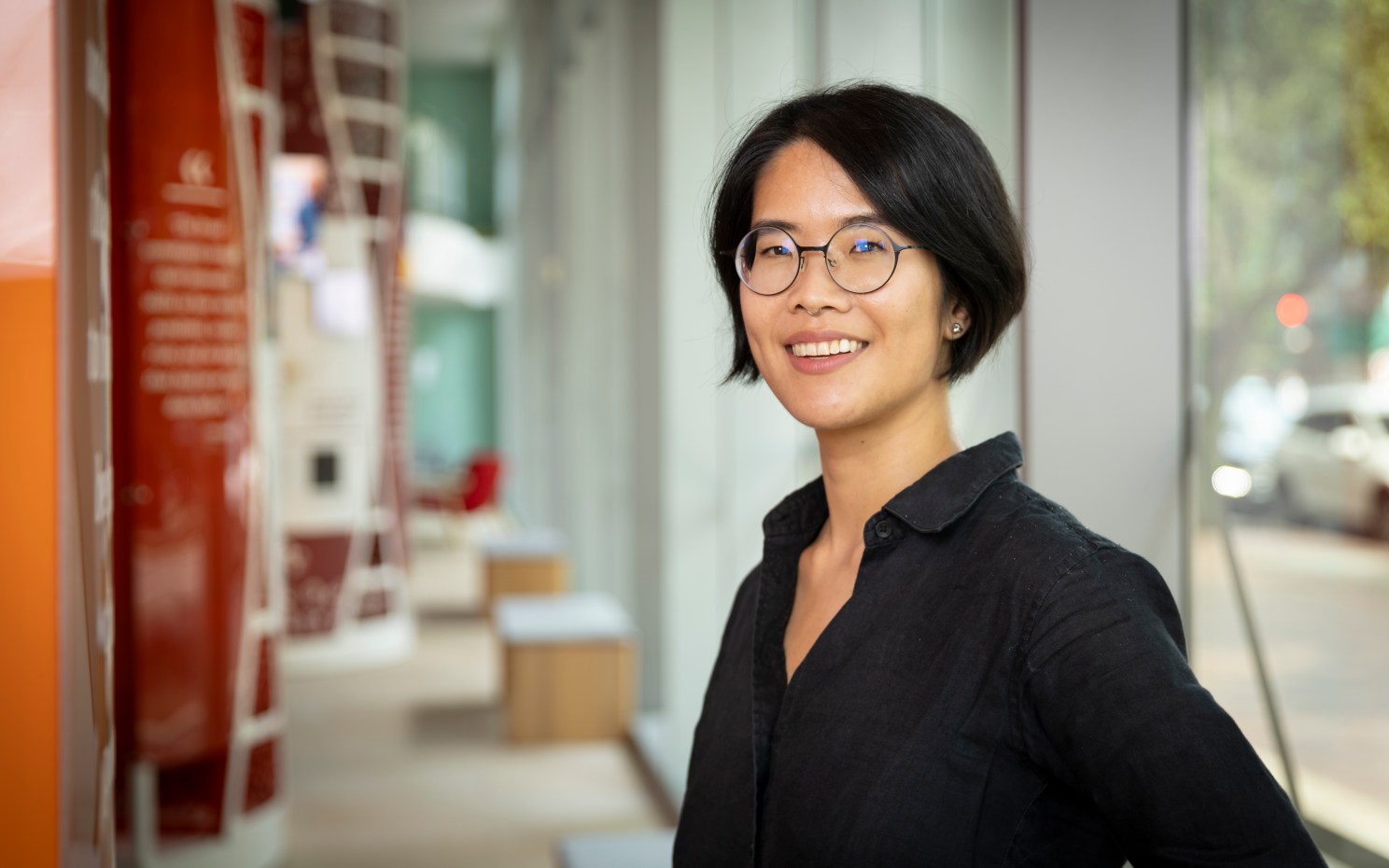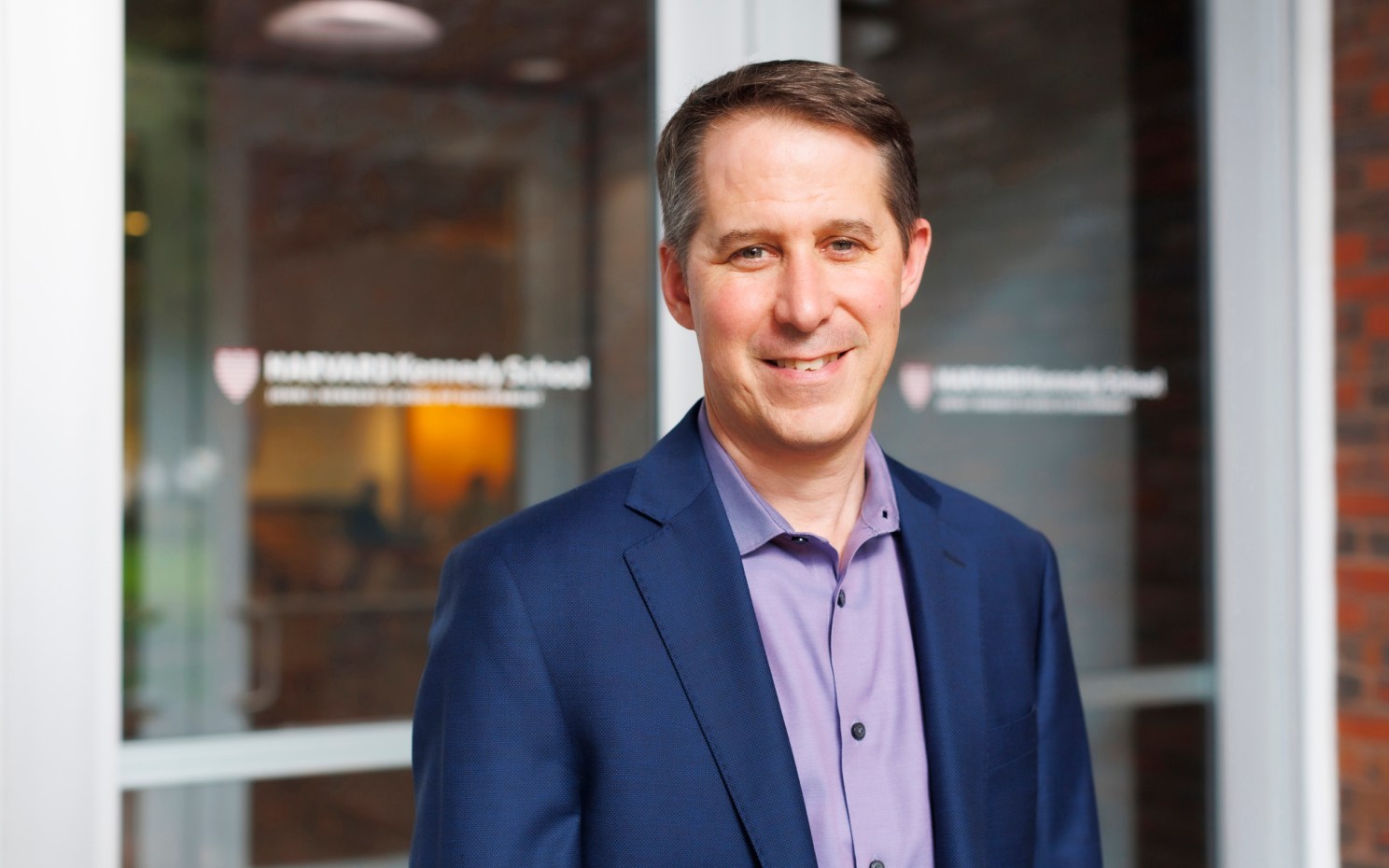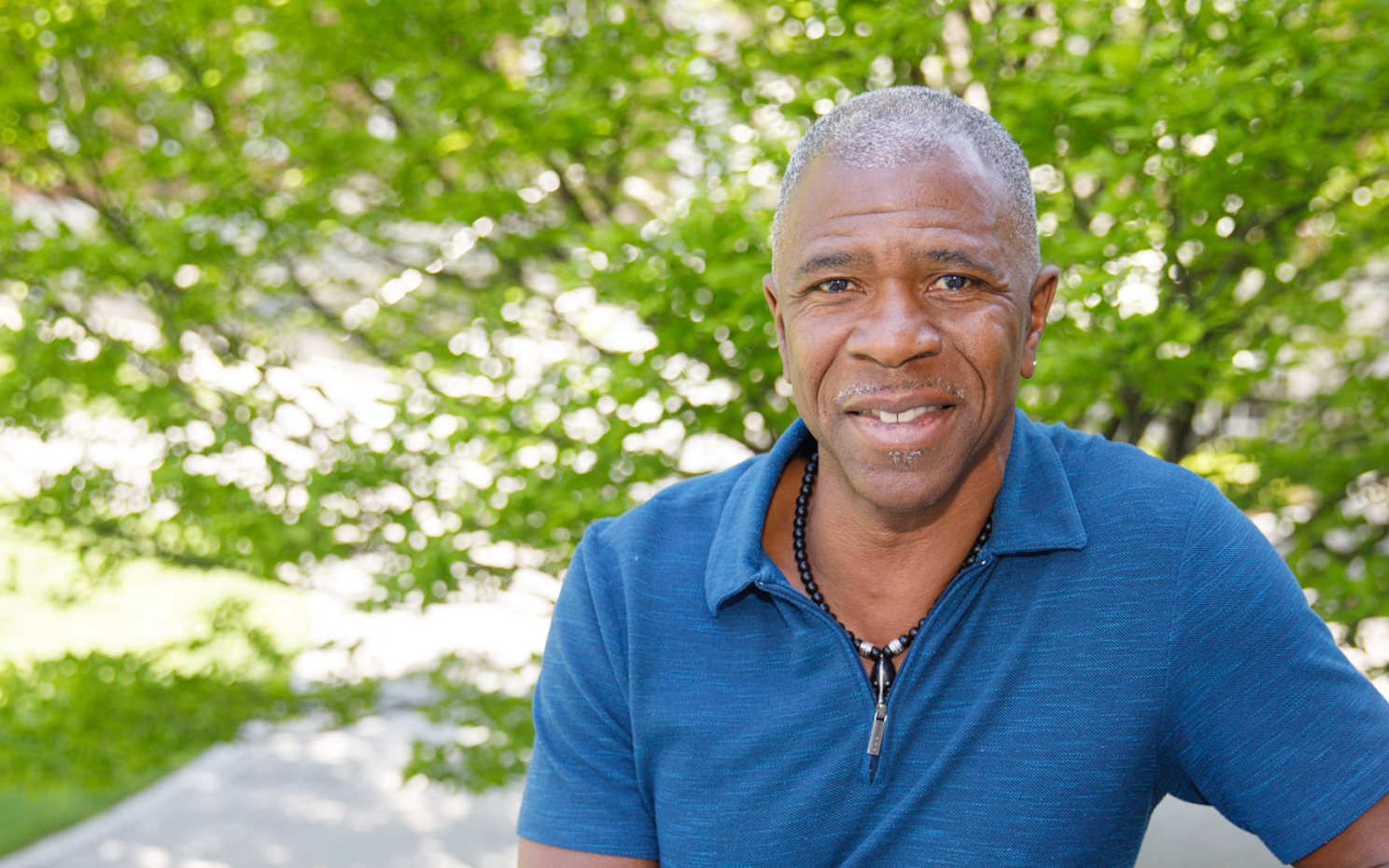Her friends’ parents were dying of cancer. Then her mom got sick.
Childhood tragedy sparks Jen Cruz’s quest to root out public health inequities
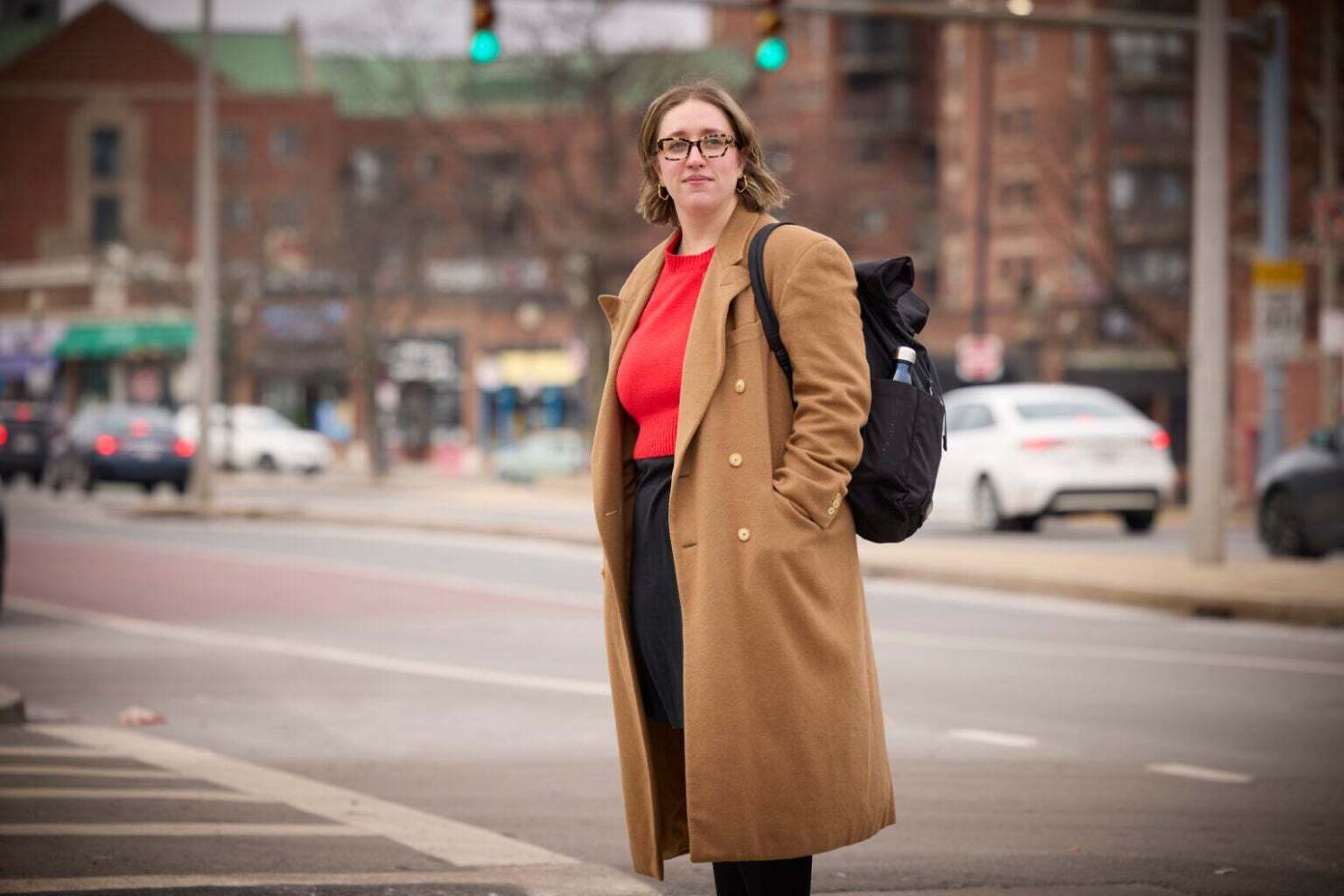
Photo by Kent Dayton
“Losing parents to cancer was the norm” in the working-class farming town of Wapato, Washington, where Jen Cruz, Ph.D. ’25, grew up. It happened to several of her friends, and then it happened to her. When Cruz was in middle school, her mother died from a rare metastatic brain cancer within a month of diagnosis.
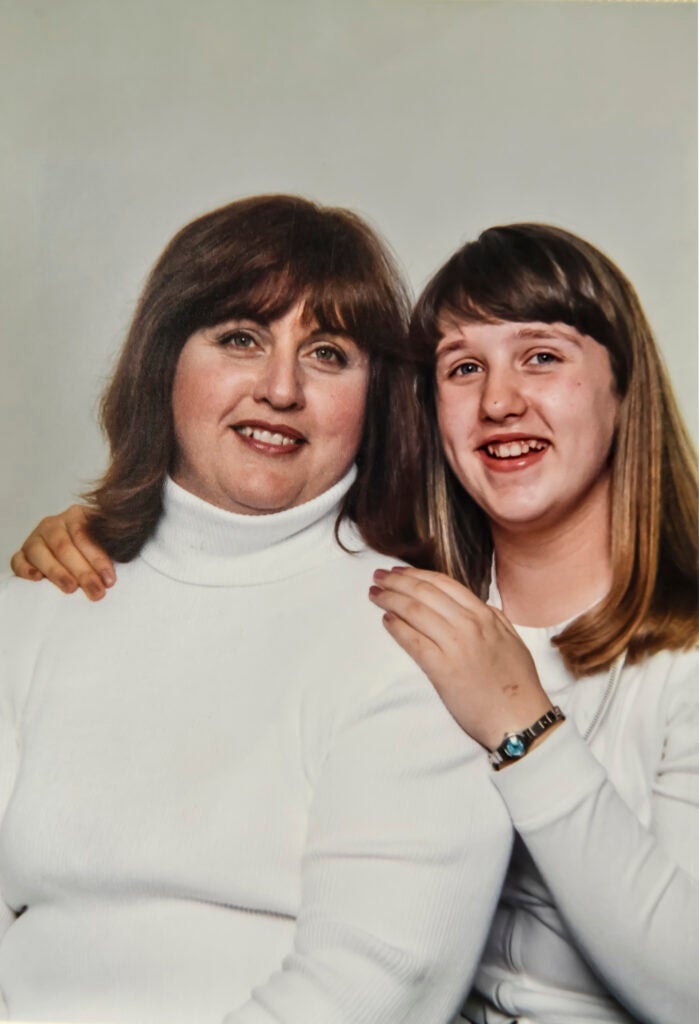
Jen Cruz at around 10 years old with her mother, Sheila.
Photo courtesy of Jen Cruz
It wasn’t until years later as a first-generation student at Seattle University that Cruz began to think about what it meant to grow up in a rural town with a dearth of social services and a large portion of residents living below the federal poverty line.
“I was introduced to the concept of inequities and learned to see things through a social justice lens, and that was really my way into understanding where I grew up,” she said.
“It wasn’t just random that all of my friends’ parents were getting sick and didn’t have access to resources, while someone’s aunt in a wealthier nearby town was able to go to Seattle and get the best care possible.”
These realizations laid the groundwork for Cruz’s pursuit of a career in public health. Currently studying in the Population Health Sciences program based at Harvard T.H. Chan School of Public Health, she’s pursuing a Ph.D. in what she has termed “applied social epidemiology.” Her dissertation combines social epidemiology, qualitative approaches, and community-engaged research to find solutions for reducing inequities in breast cancer screening across rural settings.
Bringing it home
The work could have immediate benefits for her hometown. To conduct her research, Cruz has found partners at local Native-serving organizations and the hospital systems in the region who say her work directly aligns with their strategy around reducing breast cancer rates and improving health equity. Making the work even more poignant is the fact many working at these organizations knew Cruz’s mother. Cruz is looking forward to repackaging her dissertation for these agencies to use.
“This work is so meaningful, not just to me, but also to these health leaders and their goals,” she said. “My success is their success.”
For her dissertation on breast cancer screening inequities, Cruz aims to figure out how best to deliver the health and social services that rural communities need. She starts with the theory that “there’s no one type of rural.”
“Different communities need different supports, and that even in one community, certain interventions may drive racial inequities.”
She’s conducting qualitative research in towns in the Lower Yakima Valley, including Wapato, which represent two of the four types of rural communities she identified that differ in their experience of social deprivation. She’ll record healthcare providers’ and residents’ experiences and develop a simulation model that tests ways to reduce breast cancer screening inequities depending on the rural context.
From reactive to proactive
As an undergrad, Cruz majored in psychology, thinking she wanted to provide grief and bereavement care to cancer patients and their families. Her mind changed midway through her postgrad year as a Fulbright scholar, during which she worked in India with epidemiologists studying cancer inequities. “Why would I wait for someone to die?” she remembers thinking. “What if I didn’t have to do the grief work? What if I focus on the public health side and help prevent cancer deaths from occurring in the first place?”
Cruz took this idea and ran with it, earning a master of public health degree in epidemiology from the University of Michigan before enrolling at Harvard to deepen her public health training. She has since developed her own flexible approach to public health.
“On one hand, I’m an epidemiologist who does statistics and who codes. But I also love deep listening and narratives. And on top of that, all of this research is totally insufficient to me without figuring out its applications,” she said. “That’s ultimately why I chose this program: It allows me to be quantitative and qualitative and to work with scientists and researchers who are actually implementing solutions.”
A sense of community
Cruz said that at the Chan School she has found mentors and a sense of community. “On paper, it looks like I’ve always known exactly what I’ve been doing, right?” In reality, she said, she’s relied on the advice of mentors to forge her path. “In every place and at every institution, there have been people who have invested in me and with whom I’ve been able to build community and trust. That’s what has pushed me in the right direction.”
Associate Professor Shoba Ramanadhan, for example, encouraged Cruz to apply to Harvard. She also spent a few days in Wapato with Cruz while visiting the Pacific Northwest last year for a conference.
“Jen brings her unique experiences, identities, and vision for the world” into her work, Ramanadhan said. “The ways and extent to which her action-oriented research is grounded in community show promise for the future of public health.”
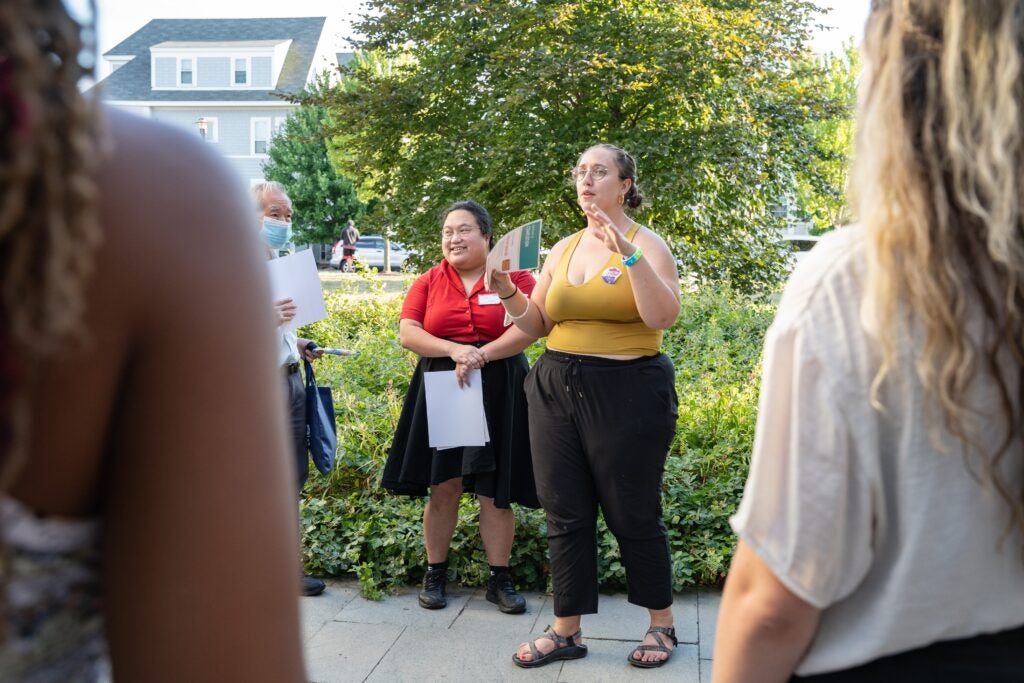
Jen Cruz hosts a neighborhood block party for the public health education program she developed in partnership with the Allston Brighton Health Collaborative.
Photo courtesy of Community Health Advocate Mobilization Program
Cruz has herself become a mentor in her current neighborhood of Boston. Volunteering at a local COVID-19 vaccine clinic led to a deeper partnership with the Allston-Brighton Health Collaborative. In 2022, she helped launch the Community Health Advocate Mobilization Program, which provided 12 Allston-Brighton residents with a crash course in public health concepts and methodologies, from health equity to data-driven decision-making. Today, the program, which is funded by the Harvard Presidential Public Service Fellowship and Rose Service Learning Fellowship, is expanding to serve more cohorts and work with other Boston organizations on community leadership development.
“Community health work can really meaningfully take root and affect people’s lives,” Cruz said. “It just takes someone investing in people and not deciding for them.”
Cruz is committed to upholding this spirit in future public health work — whether she continues to focus on cancer equity or branches out to explore other interests, such as gender as a social determinant of health. She’s also wide open to where she might work, be it a university, a public health department, or a community organization, in the U.S. or abroad.
No matter how her path continues to unfold, what keeps Cruz grounded is where — and whom — she came from.
“It’s all because I lost my mom. My life could have gone in two directions: I could get lost to this not-great circumstance, or I could use it,” Cruz said. “I’ve gone further than I ever expected, doing work that’s rooted not only in my training, but also in what I’ve experienced, and staying true to that — even when it’s hard.”



